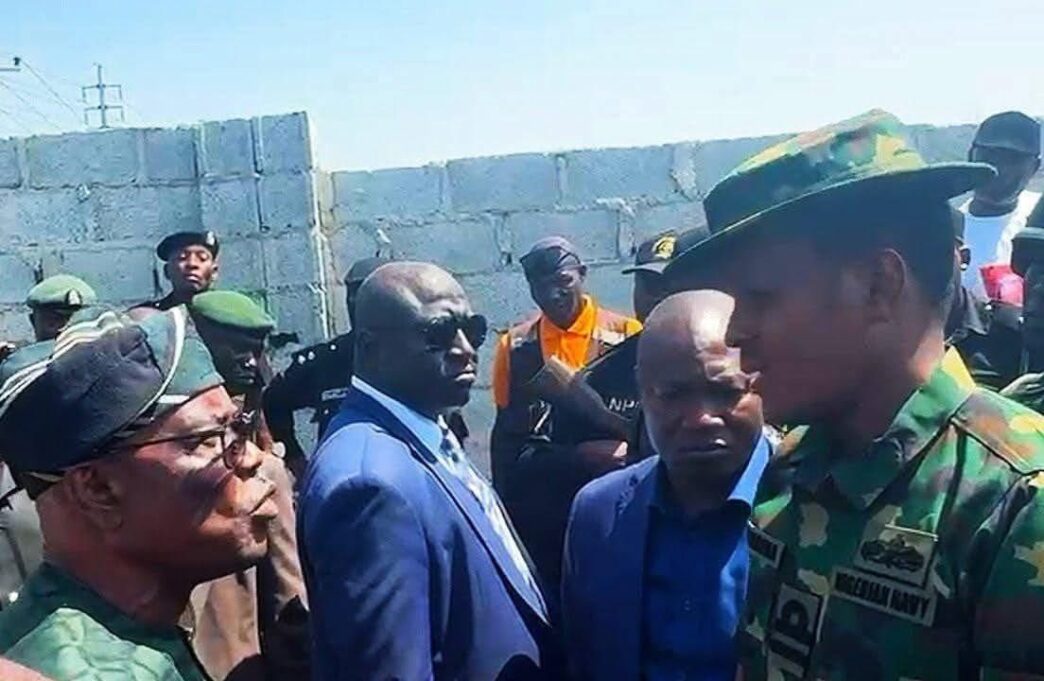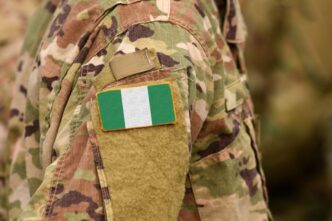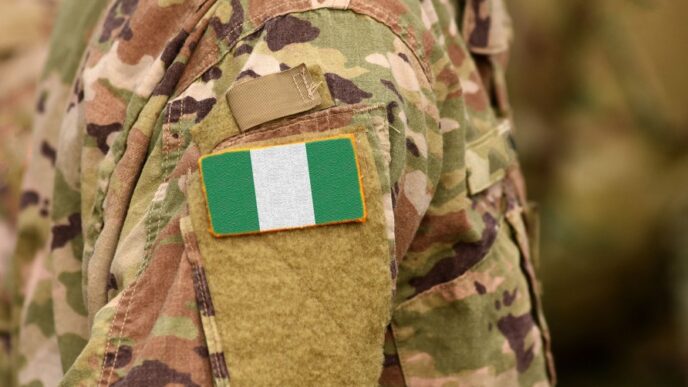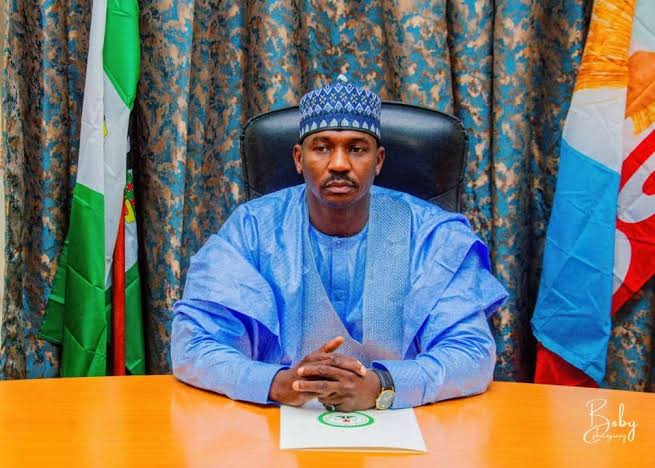The recent confrontation between the Minister of the Federal Capital Territory, Nyesom Wike, and a military officer over a disputed plot of land in Gaduwa, Abuja, has stirred intense public debate. Yet beneath the headlines lies a deeper question about the sanctity of law, the limits of military authority, and the meaning of professionalism in public service.
Reports indicate that officials of the Federal Capital Territory Administration (FCTA) were obstructed by armed soldiers while attempting to enforce a stop-work order on an ongoing development alleged to have no valid title or building approval. The soldiers, said to be acting on the instructions of a retired Chief of Naval Staff, reportedly resisted the enforcement team and challenged the minister’s authority. The altercation, captured on video, quickly became viral and embarrassing for both institutions involved.
While emotions may run high, the principle at stake is unambiguous: no individual or institution is above the law, not even the military. The Nigerian Constitution is clear that the armed forces exist to defend the territorial integrity of the nation — not to enforce or protect private interests. When a serving officer abandons his professional duty to act as an enforcer in a land dispute, he desecrates the uniform he wears and undermines the honour of the institution he represents.
Even if the disputed property were lawfully allocated to the Navy or a retired officer, the rule of law prescribes a clear path. The rightful claimant must submit documentation to the FCTA for verification and, if aggrieved by any administrative decision, seek judicial redress through the courts. What cannot be tolerated is a situation where armed personnel intimidate civil authorities or obstruct lawful administrative processes. Such conduct is nothing short of an abuse of power and a direct affront to civilian governance.
Minister Wike’s response, therefore, was not merely a personal reaction but an assertion of the authority of civil institutions over unlawful force. The FCT Administration is constitutionally empowered to regulate land ownership and urban development within Abuja. If that authority can be defied by a handful of armed officers, then the entire structure of urban administration collapses into impunity. In this light, Wike’s insistence that “no one is above the law” is both timely and necessary.
That said, the incident also highlights the urgent need for better coordination between civilian and military institutions. Disputes involving government land or military establishments should be addressed through inter-agency channels — not confrontation at construction sites. The Defence Headquarters must take disciplinary action against the officer involved, both to restore public confidence and to demonstrate that the Nigerian Armed Forces remain an institution of discipline, not disorder.
The Nigerian public holds the military in high esteem for its sacrifices in defending the nation. But such respect is sustained only when the military itself upholds the law it swore to defend. Deploying soldiers in a private or unauthorized capacity erodes that respect and sends a dangerous message to the public — that power can be used to subvert justice.
The lesson from this episode is clear: the rule of law must remain supreme. Ministers, soldiers, and civilians alike are bound by the same legal framework. The FCTA should publish the full documentation on the disputed land to reinforce transparency, while the Defence authorities must reaffirm their commitment to non-interference in civil matters.
If the incident leads to disciplinary action, public accountability, and renewed respect for due process, it would mark a positive turning point for governance in the Federal Capital Territory. Abuja cannot be a city where might overrides right. The capital should be a model of lawful order — where even those in uniform bow to the authority of law.
In the end, what Wike defended was not just a piece of land, but the very principle of civilian supremacy on which democracy rests. The officer’s conduct was indefensible; it was a betrayal of both discipline and duty. The uniform is a national symbol, not a license for impunity. It must never again be used as a weapon against the law it was sworn to protect.
Rt. Hon. Johnson Egwakhide Oghuma is a Politician, Economist, and Public Commentator.
Gatekeepers News is not liable for opinions expressed in this article, they’re strictly the writer’s.









